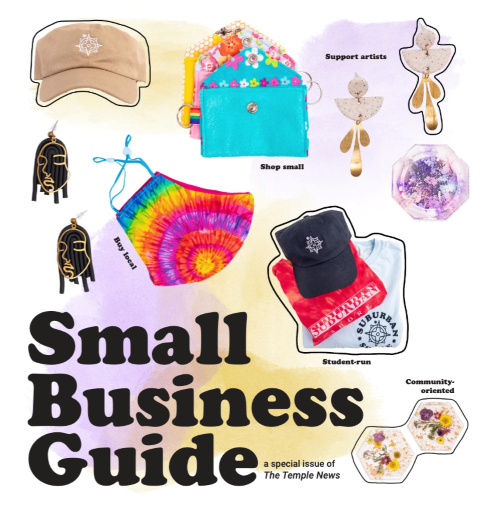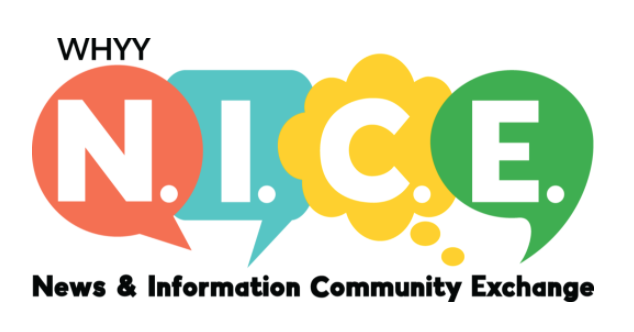Mapping Assets a Community Might Not Know It Has
So what do you do when you’re a university news outlet and you are supposed to come out with your annual special-issue Bar Guide – but profiles of local bars during a pandemic don’t seem quite right?
In the case of Temple News at Temple University in Philadelphia, you pivot and instead do a different COVID-related story. I share this effort here because I think their idea is replicable for university-licensed public radio stations across the country.
Moreover, it’s one of two asset-mapping ideas – the other is from WHYY also in Philadelphia (more below) – that suggest new ways to spotlight grass-roots assets in a community and build audience and diversity.
Temple News

Last month, the paper published its first Small Business Guide. But the emphasis was on student quarantine hobbies that had become side gigs and even promising start-ups thanks to social-media sharing.
Features editor Emma Padner and two assistants combed Temple Facebook groups and other social media accounts and found students, and some alums, who had either started a business or just put more time into their hobbies because they couldn't work during the summer. From custom cowboy hats to cupcakes, screen-printed apparel to tufted rug art, and resin to clay creations, students started sharing their work on their personal accounts, and those posts rippled to other accounts.
“We see more and more of these businesses, and it just made sense to put them all together,” said editor-in-chief Madison Karas.
An eight-page directory, starting on page 17 inside the February 16 edition, spotlighted some two dozen efforts and came with a website landing page that linked to profiles and YouTube videos of student enterprises.
The reaction was notable. “I think people really enjoyed seeing things their peers are creating,” Padner said, adding that when she shared the directory on her personal Twitter page, “it got the most retweets and likes I’ve ever gotten on Twitter.”
The Temple News didn't have to tap the university’s startup accelerators to gather examples of student businesses, but most universities are now incubating entrepreneurial student ideas that could populate similar directories.
Karas said the directory got shared widely. “It gave readers and our student audience a direct and interactive way to engage in our content.”
Moreover, the students are using Temple News photos and credit lines in their posts. “It helps their business,” Karas said, “and it's driving readers to our content.”
WHYY-FM

WHYY is engaged in a two-year effort to map and facilitate the future of grass-roots content creators in the Philadelphia area.
The station last fall recruited its first cohort of eight content makers as part of its N.I.C.E. initiative, the News & Information Community Exchange, and expects to assemble its second cohort over the next few months, said Eric Marsh Sr., the station’s community outreach organizer.
WHYY calls N.I.C.E. a “mutual aid journalism collaborative” that aims to “organize, support, and develop grass-roots news and information content creators.”
These are not some of the most well-known media startups in the city. But many have been around for years and are closely tied to their communities. Partners include newspapers, radio stations, a blogger and a digital content creator. Each gets paid $300 a month from a Knight-Lenfest grant. Marsh said the goal is to help them become sustainable, but also to share ideas and develop a network. Some are also sharing content with WHYY.
“We’re not coming in as the wise, old ones who know it all,” Marsh said. Rather than just being a re-granting program, as so many capacity-building programs are, N.I.C.E. is an opportunity for WHYY to “sit down at the table” with people who have the pulse of their communities.
In growing the group, Marsh said, WHYY pays special attention to efforts serving “a community that has been left out of the conversation.”
The project, for instance, just reached out to the Germantown Deaf Ministry in its efforts to be all-inclusive.
Ultimately, Marsh said, WHYY hopes to incorporate N.I.C.E. as part of its best practices in community engagement.
You can subscribe to CPB Ombudsman Reports at https://www.cpb.org/subscribe. Read more CPB Ombudsman Reports here.


